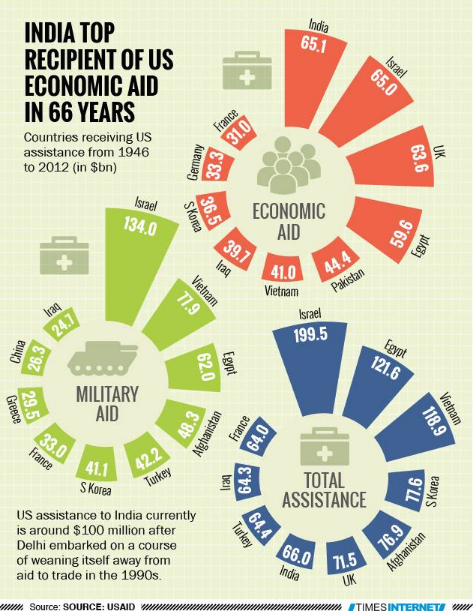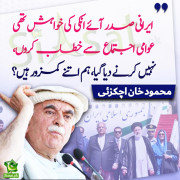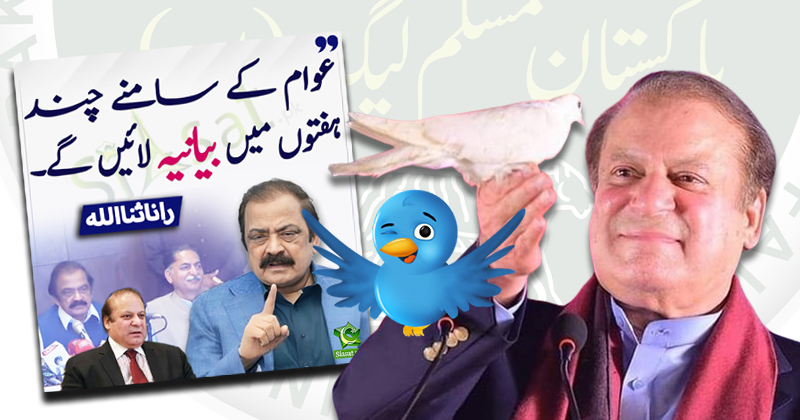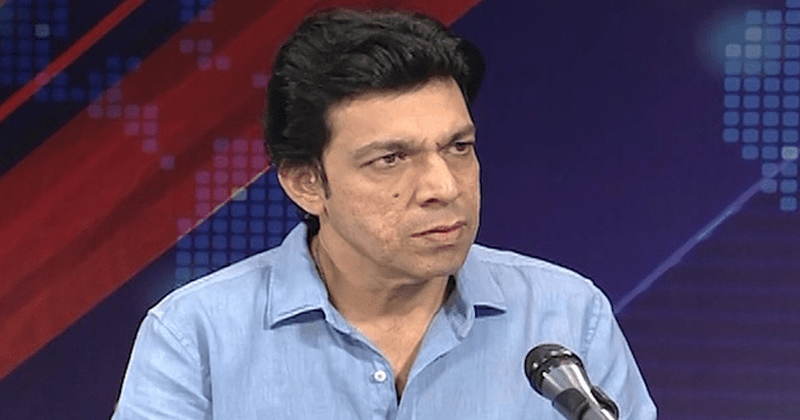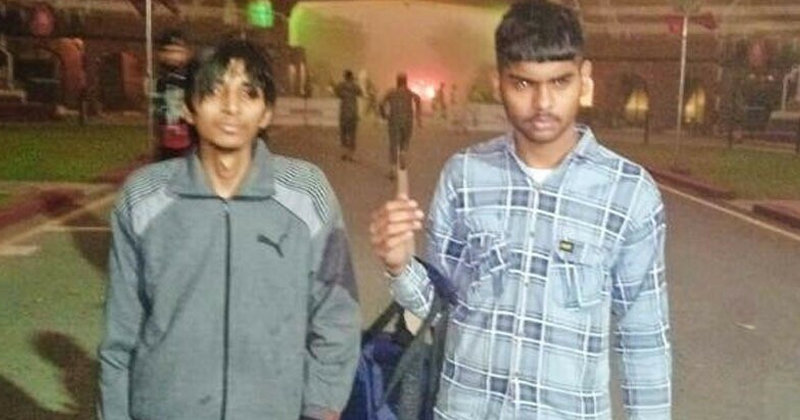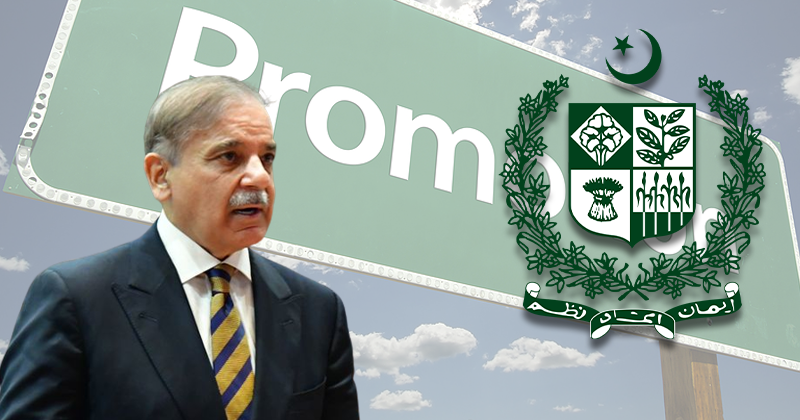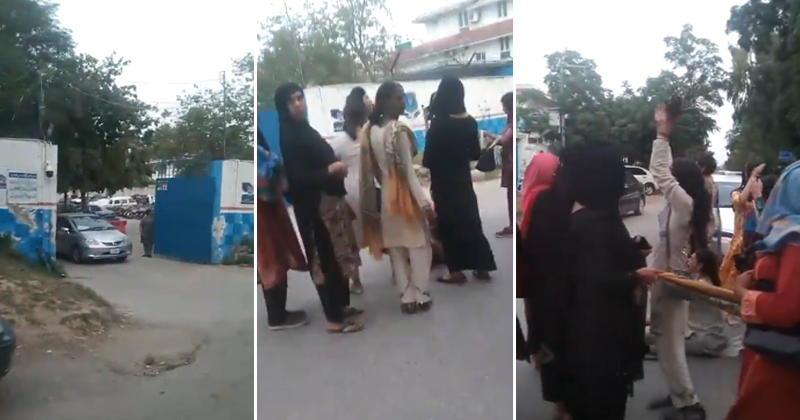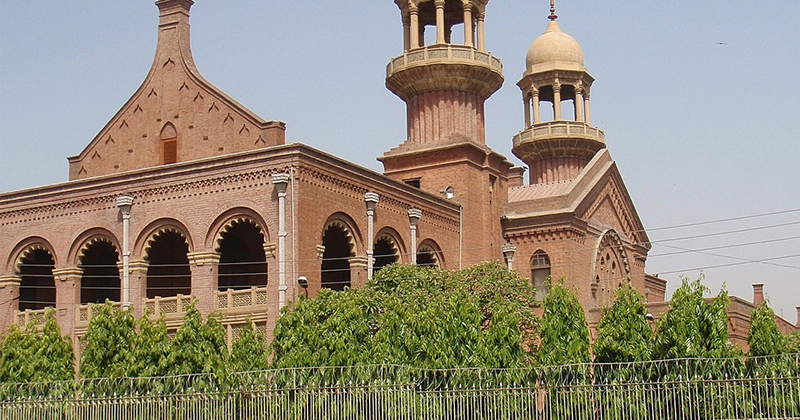India tops the list of charity recipients from private foundations while Pakistan is ranked as the 12th largest recipient of philanthropic giving in the world, according to a report released by OECD (Organization for Economic Co-operation and Development).
Global Philanthropic Foundations:
Philanthropic contributions of major international private foundations in Pakistan totaled $267 million out of the $42 billion global contribution in 2013-2015. This compares with $1.6 billion in top-ranked India and $498 billion in second-ranked China. US-based Bill and Melinda Gates Foundation (BMGF) contributed nearly half of the $42 billion in global charity by private foundations.
Private foundations are filling the huge gaps in public funding of health and education sectors in developing nations. . They contributed $11 billion for the health sector alone in the three year period, ranking third behind the United States and a global fund for fighting disease.
Local Charity in Pakistan:
Pakistanis donate generously to local charities in the country in the form of religiously mandated donations such as "zakat, sadaqa and fitrana". One of the key measures of empathy is generosity to others, the kind of generosity demonstrated in Pakistan by the likes of late Abul Sattar Edhi. The Edhi Foundation set up by the great man is funded mainly by small donations from ordinary people in Pakistan.
Anatol Lieven, author of "Pakistan: A Hard Country" wrote the following tribute to the Mr. Edhi:
"There is no sight in Pakistan more moving than to visit some dusty, impoverished small town in an arid wasteland, apparently abandoned by God and all sensible men and certainly abandoned by the Pakistani state and its elected representatives - and to see the flag of Edhi Foundation flying over a concrete shack with a telephone, and the only ambulance in town standing in front. Here, if anywhere in Pakistan, lies the truth of human religion and human morality."
What Professor Anatol Lieven describes as "human religion and human morality" is the very essence of the Huqooq-ul-Ibad (Human Rights) in Islam. Abdus Sattar Edhi understood it well when he said, "there's no religion higher than humanity".
Edhi understood the meaning of what the Quran, the Muslim holy book, says in chapter 2 verse 177:
"Righteousness is not that ye turn your faces towards the east or the west, but righteous is, one who believes in God, and the last day, and the angels, and the Book, and the prophets, and who gives wealth for His love to kindred, and orphans, and the poor, and the son of the road, beggars, and those in captivity; and who is steadfast in prayers, and gives alms."
A recent article written by Shazia M. Amjad and Muhammad Ali and published in Stanford Social Innovation Review said that " Pakistan is a generous country. It contributes more than one percent of its GDP to charity, which pushes it into the ranks of far wealthier countries like the United Kingdom (1.3 percent GDP to charity) and Canada (1.2 percent of GDP), and around twice what India gives relative to GDP."
Empathy Study:
A Michigan State University (MSU) study of 63 countries finds that Pakistanis have higher empathy for others than people in their neighboring countries. It also finds that the United States is among the most empathetic nations in the world.
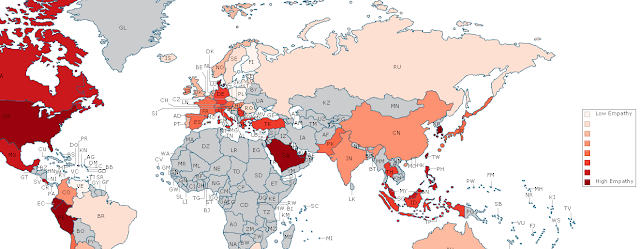
The MSU researchers, led by William J. Chopik, analyzed the data from an online survey on empathy completed by more than 104,000 people from around the world.
The survey measured people’s compassion for others and their tendency to imagine others’ point of view. Countries with small sample sizes were excluded (including most nations in Africa). All told, 63 countries were ranked in the study, according to MSUToday, a publication of Michigan State University.
Summary:
Pakistanis are among the most generous people in the world. They contributes more than one percent of the nation's GDP to charity, which pushes Pakistan into the ranks of far wealthier countries like the United Kingdom (1.3 percent GDP to charity) and Canada (1.2 percent of GDP), and around twice what India gives relative to GDP, according to Stanford Social Innovation Review. Average Pakistanis continue to be empathetic and generous in spite of the violence and the terror they have endured for over a decade. It can only be attributed to the strength of their faith and their adherence to what Prof. Lieven describes as "the truth of human religion and human morality".
Source
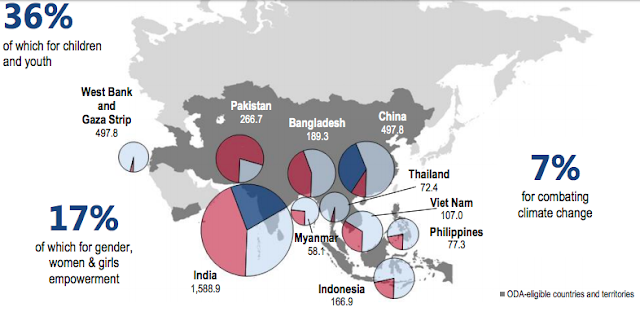
|
| Private Foundation Philanthropy in Asia. Source: OECD |
Global Philanthropic Foundations:
Philanthropic contributions of major international private foundations in Pakistan totaled $267 million out of the $42 billion global contribution in 2013-2015. This compares with $1.6 billion in top-ranked India and $498 billion in second-ranked China. US-based Bill and Melinda Gates Foundation (BMGF) contributed nearly half of the $42 billion in global charity by private foundations.
Private foundations are filling the huge gaps in public funding of health and education sectors in developing nations. . They contributed $11 billion for the health sector alone in the three year period, ranking third behind the United States and a global fund for fighting disease.
Local Charity in Pakistan:
Pakistanis donate generously to local charities in the country in the form of religiously mandated donations such as "zakat, sadaqa and fitrana". One of the key measures of empathy is generosity to others, the kind of generosity demonstrated in Pakistan by the likes of late Abul Sattar Edhi. The Edhi Foundation set up by the great man is funded mainly by small donations from ordinary people in Pakistan.
Anatol Lieven, author of "Pakistan: A Hard Country" wrote the following tribute to the Mr. Edhi:
"There is no sight in Pakistan more moving than to visit some dusty, impoverished small town in an arid wasteland, apparently abandoned by God and all sensible men and certainly abandoned by the Pakistani state and its elected representatives - and to see the flag of Edhi Foundation flying over a concrete shack with a telephone, and the only ambulance in town standing in front. Here, if anywhere in Pakistan, lies the truth of human religion and human morality."
What Professor Anatol Lieven describes as "human religion and human morality" is the very essence of the Huqooq-ul-Ibad (Human Rights) in Islam. Abdus Sattar Edhi understood it well when he said, "there's no religion higher than humanity".
Edhi understood the meaning of what the Quran, the Muslim holy book, says in chapter 2 verse 177:
"Righteousness is not that ye turn your faces towards the east or the west, but righteous is, one who believes in God, and the last day, and the angels, and the Book, and the prophets, and who gives wealth for His love to kindred, and orphans, and the poor, and the son of the road, beggars, and those in captivity; and who is steadfast in prayers, and gives alms."
A recent article written by Shazia M. Amjad and Muhammad Ali and published in Stanford Social Innovation Review said that " Pakistan is a generous country. It contributes more than one percent of its GDP to charity, which pushes it into the ranks of far wealthier countries like the United Kingdom (1.3 percent GDP to charity) and Canada (1.2 percent of GDP), and around twice what India gives relative to GDP."
Empathy Study:
A Michigan State University (MSU) study of 63 countries finds that Pakistanis have higher empathy for others than people in their neighboring countries. It also finds that the United States is among the most empathetic nations in the world.

The MSU researchers, led by William J. Chopik, analyzed the data from an online survey on empathy completed by more than 104,000 people from around the world.
The survey measured people’s compassion for others and their tendency to imagine others’ point of view. Countries with small sample sizes were excluded (including most nations in Africa). All told, 63 countries were ranked in the study, according to MSUToday, a publication of Michigan State University.
Summary:
Pakistanis are among the most generous people in the world. They contributes more than one percent of the nation's GDP to charity, which pushes Pakistan into the ranks of far wealthier countries like the United Kingdom (1.3 percent GDP to charity) and Canada (1.2 percent of GDP), and around twice what India gives relative to GDP, according to Stanford Social Innovation Review. Average Pakistanis continue to be empathetic and generous in spite of the violence and the terror they have endured for over a decade. It can only be attributed to the strength of their faith and their adherence to what Prof. Lieven describes as "the truth of human religion and human morality".
Source



